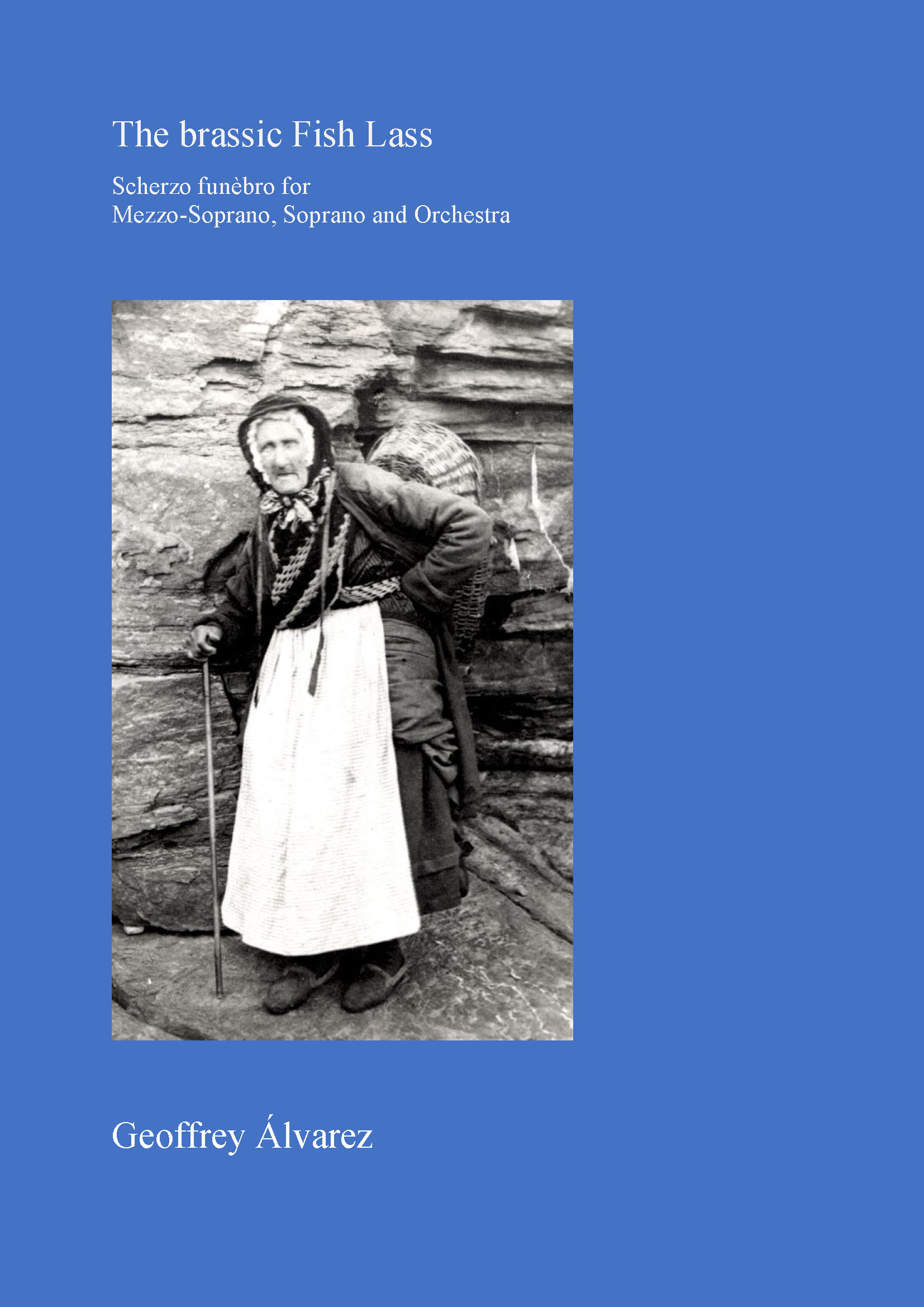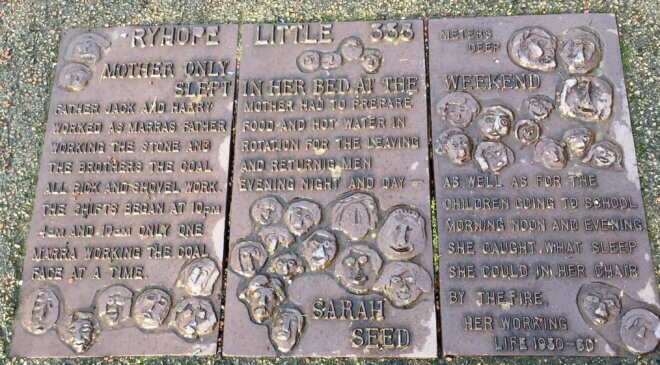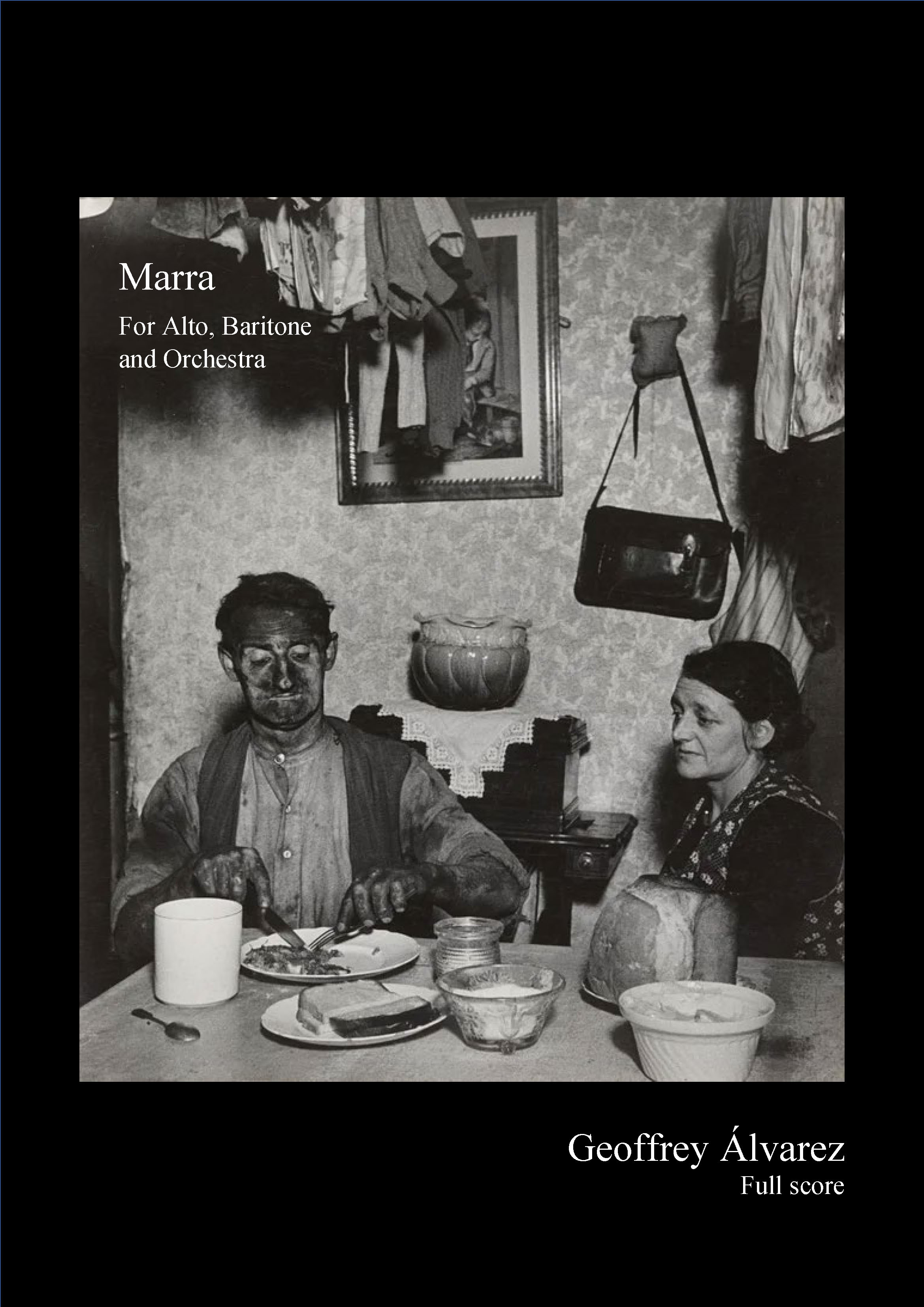
Geoffrey
Álvarez: A Sunderland Symphony
Instrumentation
Piccolo, 2 Flutes, Alto Flute, 2
Oboes, Cor Anglais, Clarinet in Eb,
2
Clarinets in Bb, Bass Clarinet in Bb,
Bassoons,Contrabassoon,
4 Horns in F, Piccolo Trumpet in Eb,
2
Timpani (two players)
Piano, 8 church bells tuned to the diatonic octave
An alternative version for F major bells is also available.
Soprano, Mezzo-Soprano, Bass, SSAATTBB Chorus
Strings

Full Score of complete work
version ending in D -
Orchestral Material
Full Score of complete work
version ending in G -
Orchestral Material
Full Score of complete work
version ending in F -
Orchestral Material
Vocal Score with pianoforte duet reduction - version in D, G & F
1: Nil desperandum auspice
“Don’t despair, trust in God.” – a celebration of Sunderland’s city motto
accompanied by a stylised boom redolent of the foghorn of the Souter light
house, the strident call of the great herring
gulls
and the sea herself.
This is both the first movement of A Sunderland
video realisation of vocal parts

2: The brassic Fish Lass
For Mezzo-soprano, Soprano and orchestra
A fish lass (or wife) haggles with a hinny (lady) over her produce on a brassic (freezing cold) day.
Fish
Lass: Will yer baaee? Will yer baaee ma
Nice
crab hinny? Can a sell ya a nice crab now?
Hinny: How much is the crab?
Fish Lass: That big one’s two shillin
Hinny: Two shillin
Fish Lass: Yes and the lobster's five schilin. Now these are just from out the
sea this morning.
They're fresh fish yer.
Hinny: Yer sure they’re fresh?
Fish Lass: Quite shooer. Yes.
Hinny: I'll give you one and nine.
Fish Lass: Noer. It’s very sweet yer know. Got to have coppers this week, last
week.
It’s very sweet yer know. Bag of willicks are three-pence and six-pence.
Hinny: I'll have a six penny bag.
Fish Lass: I’ll gi yer a six penny one la giv yer a pin ter poke them yer know.
Hinny: All-right.
Fish Lass: Yes I’ll giz a pinnin free of charge.
video realisation of vocal and string parts

3: Jabberwocky: an uffish Fugue
The first verse
a publication Lewis Carroll wrote for his family.
The rest of the poem was written in Whitburn,
based
on two
the Lambton and Sockburn worms.
video realisation

4: Marra.
for Alto, Bass, Chorus
The text of
Marra is from
the Ryhope Little plaque
detailing
with the life of the wife and mother of pitmen, Sarah Seed.

video realisation of vocal parts

5: Bede’s Death Song
For Bass, Chorus, Organ, Church Bells and Orchestra
The Venerable Bede died on
Thursday,
26 May 735, Ascension Day, on the floor of his cell in Jarrow
singing Glory be to the Father and to the Son
and to the Holy Spirit. That
night
he dictated a final sentence to the scribe, a boy named Wilberht, and
died
soon afterwards. Bede’s disciple, Cuthbert composed a letter to Cuthwin
on
Bede’s death, alluding to a five-line poem in the vernacular that Bede
possibly
composed on his deathbed, known as Bede’s Death Song. Whilst the poem is not
definitely attributed to Bede, this orchestral song imagines that Bede is indeed
composing this poem on his deathbed, taking
Contact Geoffrey Álvarez for performance materials.
Northumbrian version
Fore thaem neidfaerae ‖
naenig uuiurthit
thoncsnotturra, ‖ than him tharf sie
to ymbhycggannae ‖ aer his hiniongae
huaet his gastae ‖ godaes aeththa yflaes
aefter deothdaege ‖
doemid uueorthae.
Modern English translation
Before the unavoidable
journey
‖ nothing can be
More wise-thinking, ‖ than he who
Recalls with mindfulness
‖ before his going-away
On whether his soul ‖ good or ill
After death’s day ‖ will be judged.
© Copyright Geoffrey Álvarez 2022
video realisation of vocal parts of G version
video realisation of vocal parts of F version
score of G version
score of F version
